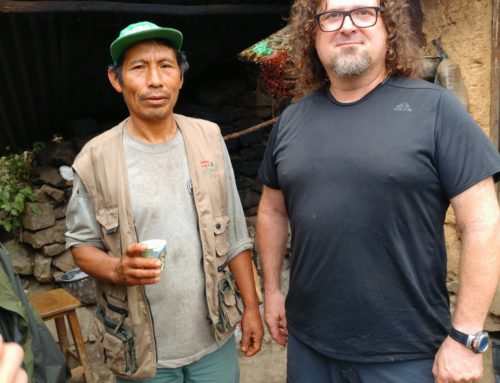As someone in a creative field, I spend a lot of time staring abstractly into space waiting for inspiration to strike me. It’s partly the reason I’ve always imagined that I—my mind, my ego, my brain—is not wholly responsible for the words I write. Some of it just comes to me when I’m staring into the ether. The universe speaks through my fingertips.
Yet, despite years of engaging in this practice in a semi-subconscious way, there was always a little part of me that balked at the idea that thinking is a valid activity. I mean, it’s so damn passive. You just sit there with a vacant look on your face staring at a wall, or the floor, or a shelf full of items you don’t even see. If a boss is tracking you remotely, you look entirely idle. You log no keystrokes. You conduct no searches. The wheels in your brain may be grinding, your neurons firing, your prefrontal cortex lighting up, but you’ve become a motionless lump, half asleep in your chair.
The fuel of creation
Except, here’s the thing. Despite my bias for action, I (like Julie Andrews) believe that nothing comes from nothing. Thought may look passive but it’s the invisible force that fuels creation. Us management types don’t call it “brainstorming” for nothing. When you harness the storm in your brain, you truly plug into the power of infinite possibility, the source of all manifestation, the literal mother lode.
Roughly ten years into my career, one of my mentors told me that I should be scheduling time to think into my calendar. At the time, it seemed like frivolous advice. When you’re literally hacking away at a mountain of responsibilities, a to-do list as long as your arm, spending two hours “thinking” seems kind of insane. To make matters worse, I wasn’t advised to think for a mere two hours. I was told to think for a whole day. Imagine that! A whole day of doing no “actual” work. So, ya. I kinda ignored that advice.
Silly me. In the intervening years, I’ve come to realize the wisdom of this directive and wish I’d applied it earlier. The good news is that it’s never too late to start thinking. Why, you could do it right now, with no money down, no assembly required, no training at all!
Provoke yourself
Joking aside, I honestly believe our society’s relentless focus on concrete accomplishment has done us damage by marginalizing or downplaying the critical role of critical thought. Senior executives of some of the world’s most successful companies reportedly devote days, weeks, even months thinking through their strategic options before committing to a new course of action. Intuitively, I imagine most of us understand that major decisions deserve serious consideration—whether we’re devising a new business idea, planning for a difficult conversation, or envisioning alternative futures. Yet, despite this recognition, few of us grant ourselves the luxury of setting aside large swathes of time to exercise our brain power.
The good news is that our topsy-turvy world is now serving upT this unprecedented opportunity on a platter. For many of us, our schedules have suddenly shifted, making way for new patterns of behaviour. Right now, we don’t need to schedule time outside the office—we’ve been summarily kicked out. Even if you’re working at home, your altered schedule may still give you a chance you never had to simply walk around the block thinking. If you can carve out the space, consider sparking your imagination by asking yourself some inspired questions. I’ve listed some of my favourites here, which I’ve culled from Tim Ferriss’s book Tools of Titans:
- What’s not working about something you take for granted?
- How can you zig when everyone else is zagging?
- Have you outgrown your system of beliefs?
- Are you doing what you feel placed on earth to do?
Ferriss is a master at this. If you’re looking for more powerful questions to provoke your thinking, I suggest checking out his books and podcasts.
In a world that has grown increasingly distracted, spending time thinking should not be considered indulgent. To my mind, it’s actually the fertile soil from which all wisdom grows—and something tells me we’re going to need a lot more of that commodity in the years to come.





Leave A Comment